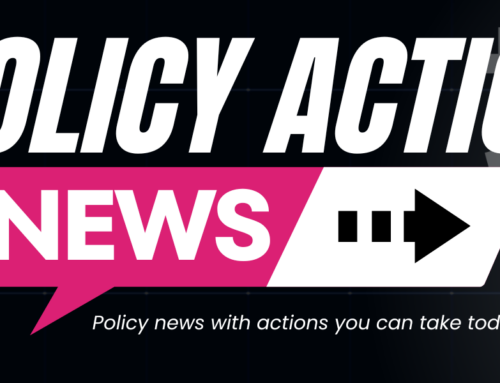The views and opinions expressed in this piece are the author’s and do not necessarily represent the position of Positive Women’s Network – USA.
by: Mira Lerner
August 12, 2022
HIV decriminalization and reproductive justice are both grounded in the right to bodily autonomy and ensuring that right is meaningfully accessible, especially for historically marginalized communities. Bodily autonomy is the “concept that individuals have the right to control what does and does not happen to our bodies.” Full bodily autonomy demands the power to make decisions about one’s health and future – free from coercion or control by others – with the support and resources needed to meaningfully carry out those decisions. Like all people with reproductive capabilities, people living with HIV deserve the right to decide whether to have children and to parent children in safe and sustainable communities without fear of criminalization.
In June 2022, the U.S. Supreme Court eliminated the constitutional right to abortion and returned the power of whether and how to regulate abortion to states, over half of which already have or are expected to ban or severely restrict abortion. This most affects Black, Indigenous, and other people of color who can get pregnant, trans people, people with disabilities, people having trouble making ends meet, and people in rural areas.
In thinking and talking the REPEAL Act, we must remember that these two issues – the criminalization of abortion and HIV – are related. The criminalization of abortion compounds the violence of HIV criminalization and further violates full bodily autonomy and human rights for people living with HIV who can get pregnant. Criminalizing abortion increases the stigma and fear of prosecution people living with HIV already often face when seeking reproductive healthcare in general, and post-abortion care specifically. Both forms of criminalization increase the risk of interpersonal and state violence against people who can get pregnant. For example, there are significant implications of forcing birth in states that penalize people living with HIV for breast/chest-feeding.
The ability to access an safe, non-stigmatizing abortion is essential for sex workers, including those living with HIV, just as it is for anyone else. Being arrested for seeking, obtaining, or aiding and abetting an abortion could increase the opportunities for charge-stacking or sentence enhancements for sex workers living with HIV. Additionally, “condoms as evidence” policies create a perilous situation for sex workers, deterring them from using important tools to prevent pregnancy and STI transmission, and yet denying them the autonomy to make decisions in relation to their own pregnancies.
Connecting the REPEAL Act
The REPEAL Act’s assessment of state laws is necessary to start the process of modernization to prevent compounding criminalization against women and other people who can get pregnant living with HIV. Furthermore, certain lawmakers in the U.S. Congress have already threatened to pass a federal abortion ban. In this context, repealing federal HIV criminalization laws is necessary to jump on any and all opportunities to protect our communities from all forms of state violence and to send a message that people living with HIV deserve to control what does and does not happen to their bodies, regardless of where they live.
Be intentional in your messaging
- Center and emphasize the right to bodily autonomy.
- Make sure that people living with HIV are included in discussions, analyses, and messaging surrounding abortion. This can include acknowledging the rights and interests of people living with HIV in reproductive justice spaces, pointing out the intersectional specific criminalizations of people living with HIV face, and uplifting the voices of people living with HIV fighting for reproductive justice, like the members and leaders of PWN.
- Reject all barriers to accessing healthcare and the criminalization of public health issues all forms of healthcare. Abortion is healthcare and HIV criminalization creates challenges for people living with HIV to access health care.
On social media
- Add REPEAL Act hashtags to posts and messages about abortion
- Post a call to action helping others understand the connection between abortion and the REPEAL Act



